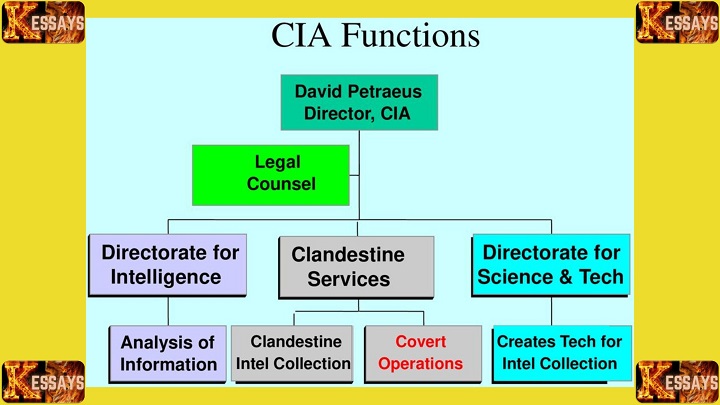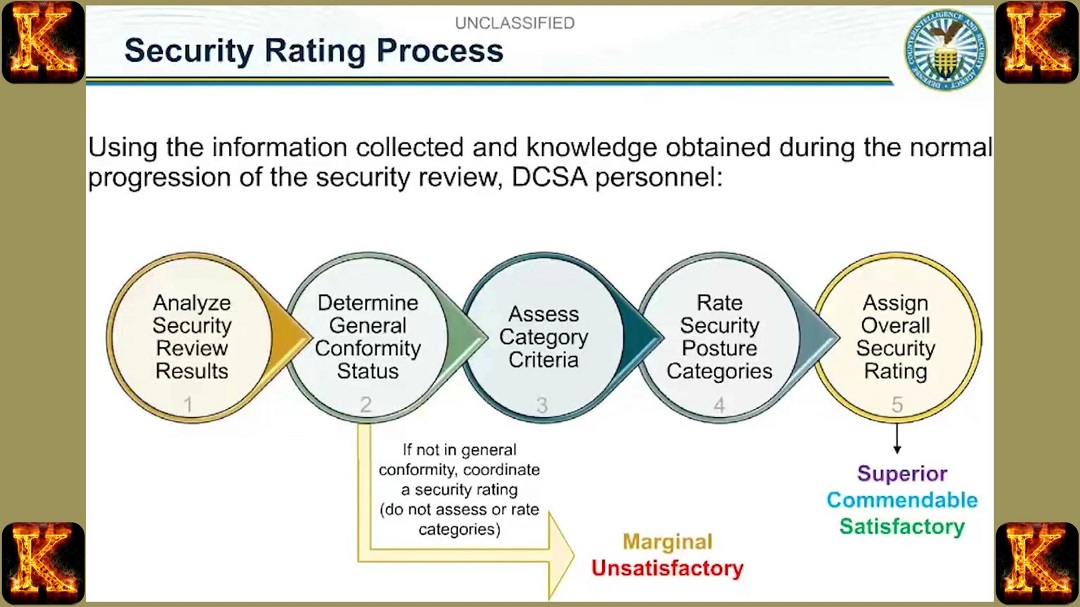Introduction
Counterintelligence, often regarded as the silent guardian of national security, protects nations from internal and external threats. Counterintelligence is a multidimensional concept that encompasses various strategies, tactics, and techniques to identify, neutralize, and exploit hostile intelligence activities. This essay explores the vital importance of counterintelligence in safeguarding nations and mitigating potential risks, emphasizing its role in preserving national sovereignty, enhancing military effectiveness, safeguarding sensitive information, and countering espionage and cyber threats.
I. Safeguarding National Sovereignty
Safeguarding a nation's sovereignty is one of the primary responsibilities of counterintelligence. It involves protecting the nation from external and internal threats that aim to undermine its autonomy, integrity, and
democratic principles. To achieve this, counterintelligence focuses on identifying and countering various forms of threats, including foreign influence, subversion, sabotage, and insider threats.
Identifying and Neutralizing Foreign Influence
Foreign influence operations pose a significant threat to a nation's
political stability and decision-making processes. Hostile foreign entities may attempt to manipulate public opinion, influence political leaders, and exploit social divisions to advance their own interests at the expense of the target nation. Counterintelligence efforts are critical in identifying these covert activities, understanding the motives behind them, and devising strategies to neutralize their impact.
By effectively countering foreign influence, counterintelligence helps protect a nation's autonomy and democratic principles. Citizens can make informed decisions based on genuine information, without being swayed by disinformation campaigns or covert attempts to shape their beliefs and opinions. Preserving the integrity of the nation's political landscape ensures that its governance remains true to the will of its people.
Foiling Subversion and Sabotage
Hostile entities, be they foreign governments or non-state actors, may attempt to subvert governmental institutions or sabotage critical infrastructure to weaken a nation's stability and disrupt its functioning. These subversive activities can range from spreading propaganda to incite unrest, funding radical groups, or launching cyber-attacks on critical infrastructure. Counterintelligence plays a crucial role in detecting and thwarting such attempts before they can cause significant harm.
By foiling subversion and sabotage, counterintelligence helps ensure national stability and continuity. It safeguards the government's ability to function efficiently and protect its citizens from internal disruptions and threats. Preserving stability is essential for a nation's growth and development, as it fosters an environment conducive to
economic prosperity, social cohesion, and progress.
Mitigating Insider Threats
Insider threats pose a unique challenge to national security as they involve individuals with access to sensitive information and critical systems. These individuals could be motivated by personal grievances, ideological reasons, or even external coercion to betray their country's interests. Counterintelligence focuses on identifying potential insider threats, assessing their motives, and implementing measures to prevent them from causing harm.
By mitigating insider threats, counterintelligence safeguards sensitive information and vital systems from internal compromise. This protects the nation's classified data, military secrets, and other critical assets from falling into the wrong hands. Additionally, preventing insider threats helps maintain trust and morale within governmental agencies and organizations, ensuring a cohesive and secure working environment.
Safeguarding national sovereignty through counterintelligence is paramount in protecting a nation's autonomy, democratic principles, and stability. By identifying and
neutralizing foreign influence, foiling subversion and sabotage, and mitigating insider threats, counterintelligence plays a vital role in ensuring the security and prosperity of a nation. As the global landscape continues to evolve, the importance of counterintelligence remains undeniable in countering both traditional and emerging threats to a nation's sovereignty and security.

II. Enhancing Military Effectiveness
Enhancing military effectiveness is a critical aspect of counterintelligence, as it directly contributes to a nation's ability to defend itself and maintain a strong position on the global stage. Counterintelligence supports the military by identifying and disrupting enemy operations, protecting military installations and technology, and countering asymmetric warfare, ensuring that friendly forces have a significant advantage over adversaries.
Identifying and Disrupting Enemy Operations
Counterintelligence plays a crucial role in identifying and neutralizing enemy intelligence operations aimed at gathering information about a nation's military strategies, capabilities, and troop movements. By understanding and countering these operations, friendly forces can maintain the element of surprise, which is often a decisive factor in military engagements. Preventing adversaries from gaining critical insights into military plans enhances the effectiveness of military actions and ensures better outcomes on the battlefield.
Protecting Military Installations and Technology
Military installations, research centers, and classified technology represent valuable assets that must be protected from espionage, theft, or sabotage. Hostile intelligence agencies or non-state actors may attempt to infiltrate these facilities to gather sensitive information or disrupt military operations. Counterintelligence works tirelessly to safeguard these critical assets by detecting and neutralizing potential threats, thereby preserving a nation's technological advantage and military supremacy.
Maintaining control over advanced military technology is essential in modern warfare, as it directly impacts a nation's ability to defend itself, deter potential aggressors, and project power on a global scale. By protecting these assets, counterintelligence contributes to the overall effectiveness of a nation's military capabilities and enhances its deterrence posture.
Countering Asymmetric Warfare
Asymmetric warfare involves unconventional tactics used by weaker actors against more powerful adversaries. These tactics, such as guerrilla warfare,
cyber warfare, and terrorism, can be challenging to counter using conventional military strategies alone. Counterintelligence plays a vital role in understanding and countering these asymmetric threats by identifying their origins, supporters, and modus operandi.
By countering asymmetric threats, counterintelligence helps maintain national security in the face of unconventional challenges. It enables the military to adapt and respond effectively to these threats, ensuring that the nation remains resilient and capable of defending itself against a diverse range of adversaries and tactics.
Enhancing military effectiveness through counterintelligence is paramount for any nation seeking to protect its interests, maintain its sovereignty, and defend against adversaries. By identifying and disrupting enemy operations, protecting military installations and technology, and countering asymmetric warfare, counterintelligence bolsters the capabilities of the military, giving it a decisive edge on the battlefield. As the nature of global threats evolves, the role of counterintelligence in supporting the military will continue to be indispensable in safeguarding nations and preserving peace and stability.
III. Safeguarding Sensitive Information
Safeguarding sensitive information is a paramount aspect of counterintelligence, as it involves protecting a nation's critical data, economic competitiveness, and diplomatic efforts from espionage and exploitation. Counterintelligence fulfills this role by protecting national secrets, preventing economic espionage, and preserving diplomatic secrets.
Protecting National Secrets
National secrets encompass classified information related to a nation's defense, intelligence operations, and other sensitive matters that, if disclosed, could seriously harm national security. Counterintelligence agencies work tirelessly to identify and neutralize threats aimed at obtaining these secrets. Such threats may arise from foreign intelligence agencies, insider threats, or cyber espionage groups seeking to gain unauthorized access to sensitive data.
By effectively protecting national secrets, counterintelligence ensures that the nation's security and
strategic interests remain intact. This allows a nation to maintain an advantage over potential adversaries, protect its citizens, and safeguard its sovereignty. Preserving national secrets is vital in an increasingly interconnected world where sensitive information can be exploited for various purposes, including economic gain and political leverage.
Preventing Economic Espionage
Economic espionage poses a significant threat to a nation's economic competitiveness and innovation. Hostile foreign governments and corporations may attempt to steal proprietary information, trade secrets, and intellectual property to gain an economic advantage or undermine a nation's industries. Counterintelligence actively counters and mitigates such attempts by identifying and disrupting espionage operations targeting economic assets.
By preventing economic espionage, counterintelligence safeguards a nation's economic well-being and protects its industries from unfair competition. Preserving proprietary information and intellectual property enhances a nation's ability to innovate, attract foreign investment, and maintain its economic strength on the global stage. This, in turn, fosters economic growth,
job creation, and prosperity for its citizens.
Preserving Diplomatic Secrets
Diplomatic secrets involve confidential communications and negotiations between nations and international organizations. These delicate interactions can be targeted by hostile intelligence agencies or other entities seeking to gain insights into a nation's diplomatic strategies, alliances, and vulnerabilities. Counterintelligence plays a crucial role in safeguarding these diplomatic secrets, ensuring that a nation's negotiating positions and diplomatic efforts remain secure.
By preserving diplomatic secrets, counterintelligence protects a nation's interests and diplomatic standing. It enables effective negotiations and promotes peaceful resolution of international conflicts. Preserving the confidentiality of diplomatic communications ensures that a nation can engage in candid discussions with other countries without fear of manipulation or coercion by adversaries.
Safeguarding sensitive information is a vital function of counterintelligence, as it directly impacts a nation's security, economic competitiveness, and diplomatic effectiveness. By protecting national secrets, preventing economic espionage, and preserving diplomatic secrets, counterintelligence ensures that a nation can operate securely and with confidence on the global stage. As the world becomes increasingly interconnected and
information-driven, the role of counterintelligence in safeguarding sensitive data and interests will continue to be of paramount importance in maintaining national sovereignty and prosperity.

IV. Countering Espionage and Cyber Threats
Countering espionage and cyber threats is a crucial aspect of counterintelligence, as these activities pose significant risks to a nation's security, economy, and critical infrastructure. Counterintelligence addresses these threats by identifying and neutralizing spies, detecting and responding to cyber threats, and unmasking covert networks.
Identifying and Neutralizing Spies
Espionage, the act of gathering sensitive information covertly, remains a persistent threat to national security. Foreign intelligence agencies often deploy spies and undercover operatives within a nation to collect classified data,
military plans, technological advancements, and diplomatic strategies. Counterintelligence agencies are tasked with identifying and neutralizing these spies to prevent unauthorized access to sensitive information.
By effectively countering espionage activities, counterintelligence protects a nation's secrets and maintains its competitive edge. This enables a nation to safeguard its military advantage, technological innovations, and diplomatic initiatives. Additionally, thwarting spies reduces the risk of potential security breaches and ensures that critical information remains in the hands of those who need it for the nation's benefit.
Cyber Threat Detection and Response
The rise of cyber threats has revolutionized the landscape of intelligence gathering and warfare. Cyber espionage involves sophisticated hacking techniques to infiltrate government systems, corporate networks, and critical infrastructure to steal sensitive data or disrupt operations. Counterintelligence plays a critical role in identifying cyber threats, assessing their origin, and mounting effective responses to mitigate potential damage.
By detecting and responding to cyber threats, counterintelligence safeguards a nation's economy and security. It helps protect critical infrastructure, financial systems, and sensitive data from cyber-attacks that could lead to significant disruptions and financial losses. Additionally, effective cyber threat detection and response bolster a nation's cyber resilience, making it less susceptible to cyber-espionage and other
cyber threats in the future.
Unmasking Covert Networks
Foreign adversaries often establish covert intelligence networks within a nation to facilitate espionage, subversion, and influence operations. These networks may involve sleeper agents, sympathizers, or operatives who blend into society while secretly carrying out their missions. Counterintelligence actively works to unmask and dismantle these covert networks, disrupting their ability to gather information and execute subversive activities.
By unmasking covert networks, counterintelligence mitigates the influence of hostile foreign entities within the nation's borders. This ensures that the nation's institutions, public opinion, and decision-making processes remain protected from external manipulation. Disrupting covert networks also sends a strong message to adversaries about the nation's determination to defend its interests and preserve its sovereignty.
Countering espionage and cyber threats through effective counterintelligence measures is essential for safeguarding a nation's security, economic prosperity, and critical infrastructure. By identifying and neutralizing spies, detecting and responding to cyber threats, and unmasking covert networks, counterintelligence ensures that sensitive information remains secure and that potential threats are mitigated. As the digital age progresses and espionage tactics evolve, counterintelligence will continue to play a vital role in defending a nation's interests and maintaining its competitive advantage on the global stage.
V. Protecting Democratic Institutions
Protecting democratic institutions is a fundamental aspect of counterintelligence, as it involves preserving the integrity of democratic processes and upholding the rule of law. Counterintelligence fulfills this role by ensuring free and fair elections, preventing foreign meddling in politics, and upholding the rule of law by identifying and prosecuting individuals engaged in illegal activities.
Ensuring Free and Fair Elections
Free and fair elections are the cornerstone of democratic societies, allowing citizens to exercise their right to choose their leaders and representatives. However, these democratic processes are vulnerable to interference and manipulation by both internal and external actors. Counterintelligence plays a crucial role in safeguarding elections by countering attempts at election interference, such as cyber-attacks, disinformation campaigns, and attempts to undermine the electoral process.
By ensuring free and fair elections, counterintelligence helps maintain public trust in the democratic system. Citizens can have confidence that their votes will be accurately counted, and the outcomes of elections will genuinely reflect their choices. Preserving the integrity of democratic processes strengthens the nation's democratic institutions and enhances the legitimacy of its governance.
Preventing Foreign Meddling in Politics
Foreign meddling in a nation's political affairs can erode democratic principles and compromise national sovereignty. Hostile foreign governments or entities may attempt to manipulate public opinion, fund political campaigns, or support divisive movements to influence domestic policies and decision-making processes. Counterintelligence efforts are essential in identifying and thwarting these attempts, ensuring that the nation's political landscape remains free from external interference.
By preventing foreign meddling in politics, counterintelligence helps preserve the nation's autonomy and democratic values. It ensures that the nation's political decisions are made based on the will of its citizens rather than external pressures. Protecting democratic institutions from
foreign influence strengthens the nation's ability to govern itself in a manner that reflects the interests and aspirations of its people.
Upholding the Rule of Law
Counterintelligence plays a critical role in upholding the rule of law by identifying and prosecuting individuals engaged in espionage and other illegal activities that threaten national security. Espionage, sabotage, and subversion can undermine democratic institutions and compromise the nation's security. Counterintelligence agencies work diligently to detect and neutralize such threats, ensuring that those who violate the law are held accountable.
By upholding the rule of law, counterintelligence reinforces the principles of justice and accountability in society. It sends a clear message that illegal activities, especially those that threaten
national security, will not be tolerated. Upholding the rule of law ensures that democratic institutions and the nation's security are protected from internal threats and maintains public confidence in the government's ability to maintain order and protect its citizens.
Protecting democratic institutions is a vital mission of counterintelligence, as it involves safeguarding free and fair elections, preventing foreign meddling in politics, and upholding the rule of law. By ensuring the integrity of democratic processes and countering threats to national sovereignty, counterintelligence strengthens the nation's democratic institutions and enhances its ability to govern in the best interests of its citizens. Preserving the democratic fabric of society is paramount for a nation's stability, prosperity, and continued progress.

Conclusion
Counterintelligence stands as a pillar of strength in safeguarding nations against a wide array of threats, both traditional and modern. From preserving national sovereignty to countering espionage and cyber threats, the importance of counterintelligence cannot be overstated. Its multifaceted approach not only protects a nation's interests but also ensures the preservation of democratic values, economic competitiveness, and national security. As the world continues to evolve, investing in robust counterintelligence capabilities remains essential to maintaining peace and stability on the global stage.



